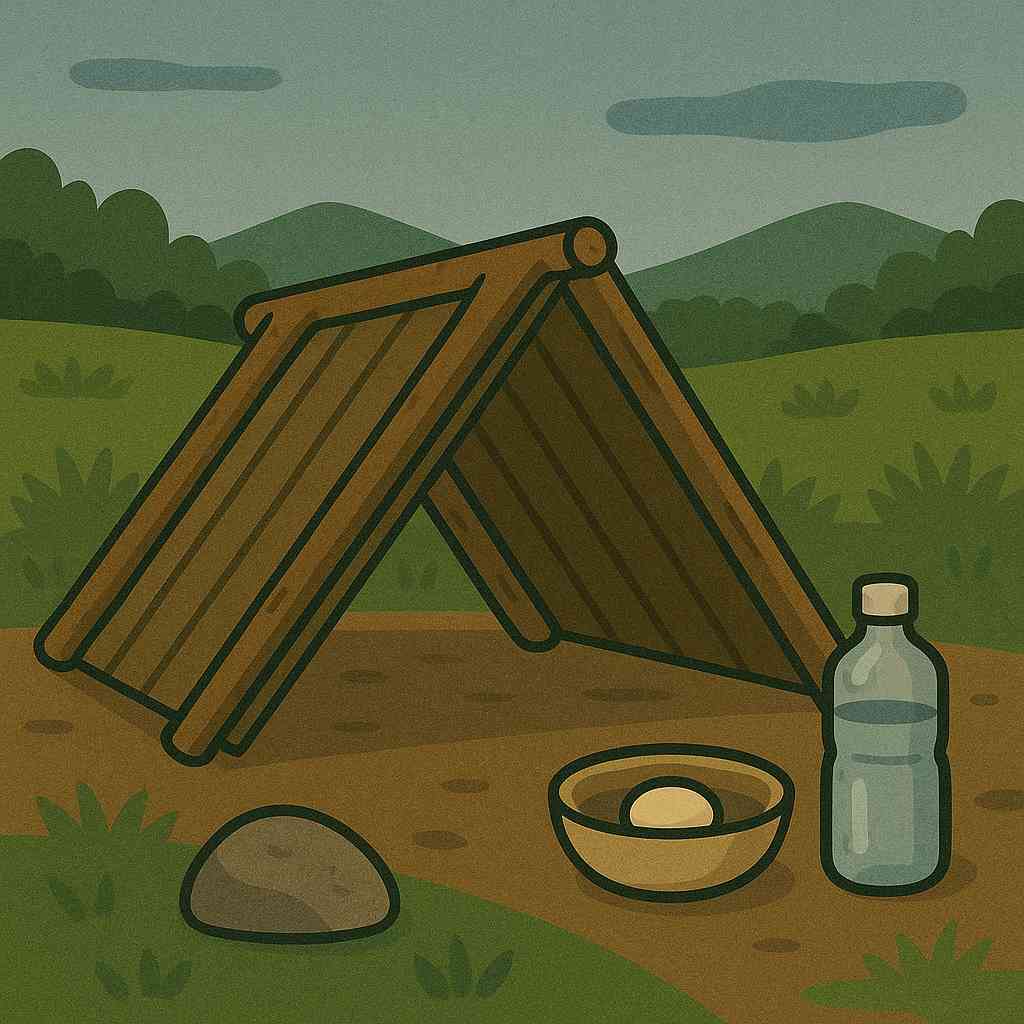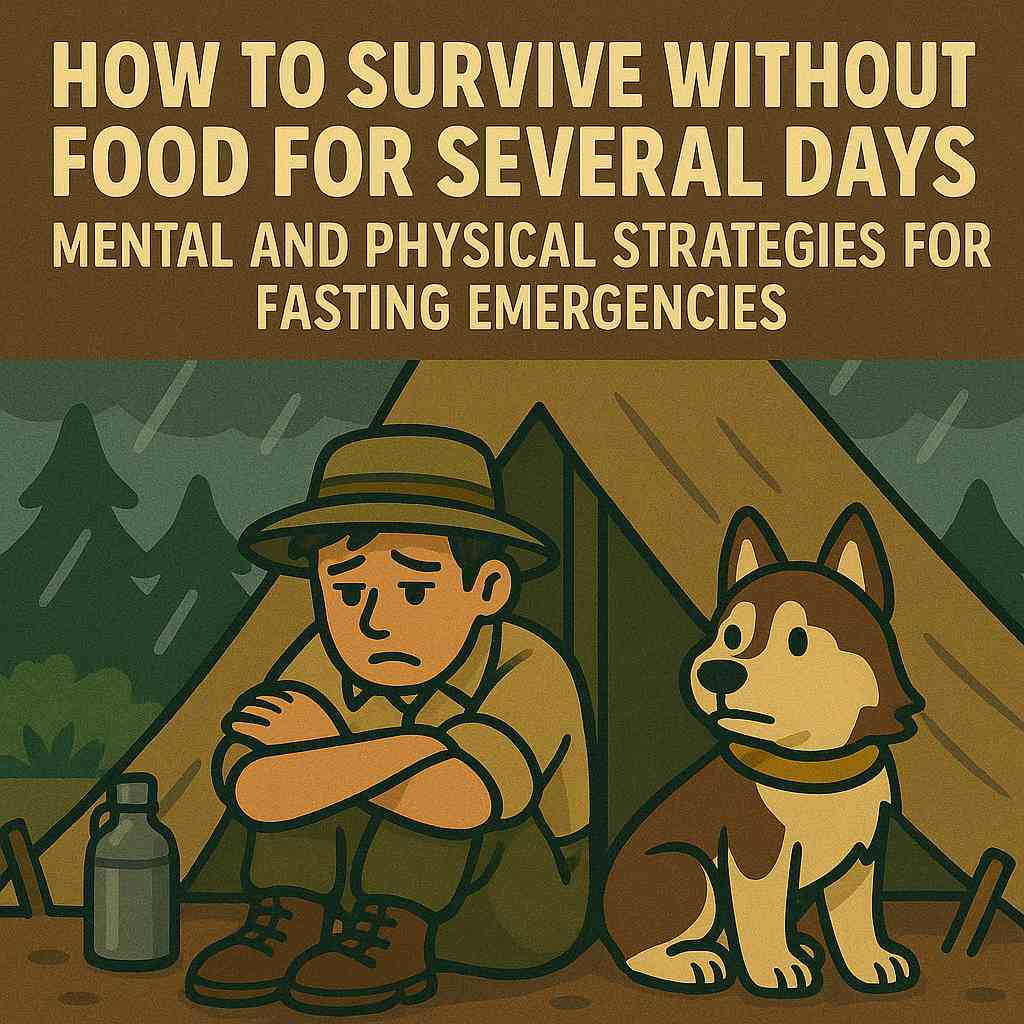What happens when your food runs out and no resupply is in sight? In survival scenarios—natural disasters, isolation, or crisis—there may be days with no food. This guide teaches how to mentally and physically endure those periods and increase your chances of survival. If you’re prepared, the body can go longer than most people think.
✅ What Happens to the Body During Fasting?
When you stop eating, the body first burns through glucose stored in the liver. After 24–48 hours, it switches to fat as fuel. This is known as ketosis. Mental clarity may improve temporarily, but energy dips can happen. Muscle loss starts after several days, especially without movement or protein. Hydration becomes even more essential during fasting to help manage fatigue and avoid dizziness.
✅ How Long Can You Survive Without Food?
In general, healthy adults can survive without food for 2 to 3 weeks if they have access to water. However, this depends on body fat, health, and environment. Cold weather, injury, or illness can drastically reduce that time. If dehydrated, survival time shrinks to only 3–5 days. It’s critical to conserve energy and avoid unnecessary exertion during this time.

✅ Mental Strategies to Manage Hunger
The first challenge isn’t always physical—it’s mental. Hunger pangs usually peak during the first 1–3 days. Train your mind to stay focused: distract yourself with tasks, maintain routines, and remind yourself hunger comes in waves. Deep breathing, meditation, and even prayer can help manage anxiety. Positive thinking and emotional discipline are as critical as physical preparedness.
✅ What to Prioritize Instead of Food
When food is scarce, shift focus to other survival essentials. Water: stay hydrated. Shelter: conserve body heat and rest. Fire: boil water or signal for help. Navigation: prepare for safe movement if needed. Maintaining body temperature and avoiding stress burn more calories than most people expect. Sit down, breathe, and plan—not panic.
✅ Conclusion
Surviving without food is possible—if you’re prepared. Focus on hydration, energy conservation, and mental control. Your body is stronger than you think, especially when backed by the right knowledge. Don’t wait for disaster to learn what hunger feels like. Know your limits, and prepare to push past them when it counts.
✅ FAQ
Q1. Can you really survive 7 days with no food?
A1. Yes, if you have water and shelter. Many people can survive 7–10 days, though energy and clarity decline.
Q2. Should I keep moving or stay still when fasting?
A2. Limit movement. Conserve energy unless relocation is absolutely necessary.
Q3. Is it safe to drink only water for several days?
A3. Yes, short-term water fasting is possible, but electrolytes help. If available, consider salt or ORS (oral rehydration solution).
|
|
How to Store Water Long Term
Essential tips for preserving drinkable water during emergencies or disasters.
|
|
|
How Much Food Do You Need for Survival?
Learn how to calculate and plan your emergency food supply for real survival scenarios.
|
 |
|
|
How to Survive With No Food or Water
Watch real survival tips on how to stay alive when food runs out. Practical, direct, and easy to follow.
|

